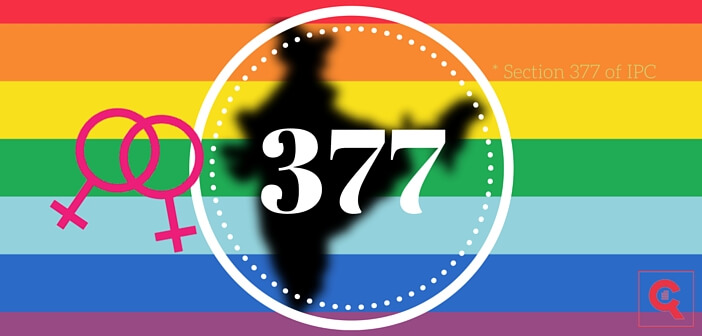Introduction:
The pursuit of LGBTQ rights in India has been a long and arduous journey, marked by significant legal battles, societal evolution, and the relentless advocacy of activists. At the heart of this struggle was Section 377 of the Indian Penal Code, a colonial-era law that criminalized consensual same-sex relationships. This article delves into the history, impact, and eventual decriminalization of Section 377, and examines the broader implications for LGBTQ rights in India.
Historical Context of Section 377
Section 377 was introduced in 1861 during British colonial rule, reflecting Victorian-era morals that sought to regulate sexual behavior. The law criminalized “carnal intercourse against the order of nature,” a phrase broadly interpreted to include homosexual acts. For over 150 years, this statute was used to oppress and marginalize LGBTQ individuals, casting a long shadow over their lives and rights.
Early Legal Challenges
The movement to challenge Section 377 began gaining traction in the early 2000s. In 2001, the Naz Foundation, an NGO working on HIV/AIDS and sexual health, filed a Public Interest Litigation (PIL) in the Delhi High Court. The organization argued that Section 377 violated fundamental constitutional rights, including the rights to equality, privacy, and personal liberty.
The 2009 Delhi High Court Decision
In a landmark ruling in 2009, the Delhi High Court declared Section 377 unconstitutional as it applied to consensual sexual acts between adults. The court emphasized that the law violated Articles 14, 15, and 21 of the Indian Constitution, which guarantee equality before the law, non-discrimination, and the right to personal liberty, respectively. This decision was hailed as a significant victory for LGBTQ rights, bringing hope and optimism to the community and its allies.
Supreme Court Reinstates Section 377
The progress made in 2009 was abruptly reversed in 2013 when the Supreme Court of India overturned the Delhi High Court’s decision. The Supreme Court held that the judiciary did not have the authority to amend or repeal Section 377, and that any change in the law should be made by the Parliament. This ruling was met with widespread disappointment and renewed determination among LGBTQ activists and supporters to continue their fight for justice.
The Historic 2018 Supreme Court Verdict
The legal battle against Section 377 culminated in a historic Supreme Court ruling on September 6, 2018. In the case of Navtej Singh Johar v. Union of India, a five-judge Constitution Bench unanimously declared that Section 377 was unconstitutional insofar as it criminalized consensual sexual conduct between adults. The court recognized that the law violated fundamental rights, including the right to equality, dignity, and privacy.The justices highlighted the importance of individual autonomy and personal freedom, stating that societal norms and morality could not justify the infringement of constitutional rights. The verdict was a monumental step forward, symbolizing a significant victory for LGBTQ rights in India.
Beyond Decriminalization: Ongoing Challenges
While the decriminalization of Section 377 was a crucial milestone, the fight for full LGBTQ rights in India is far from over. Key issues such as the legal recognition of same-sex marriages, adoption rights, anti-discrimination protections in employment and housing, and broader societal acceptance remain unresolved. LGBTQ individuals still face stigma, discrimination, and violence in various aspects of life.
The Role of Activism and Advocacy
Activism and advocacy have been at the forefront of advancing LGBTQ rights in India. Grassroots organizations, community leaders, legal experts, and allies have played pivotal roles in raising awareness, challenging prejudices, and pushing for legal and social reforms. Pride marches, public campaigns, and educational initiatives have been instrumental in changing societal attitudes and fostering a more inclusive environment.
Conclusion
The journey of Section 377, from its colonial origins to its eventual decriminalization, reflects the broader struggle for human rights and equality in India. The 2018 Supreme Court verdict was a landmark victory, but it is only one step in the ongoing quest for comprehensive LGBTQ rights. Continued advocacy, legislative reforms, and societal change are essential to ensure that the rights and dignity of LGBTQ individuals are fully recognized and protected.
As India moves forward, it is crucial to build on the momentum generated by the decriminalization of Section 377. A more inclusive society where diversity is celebrated and every individual can live with dignity and freedom, regardless of their sexual orientation or gender identity, is the ultimate goal. The story of Section 377 serves as a powerful reminder that the fight for equality is ongoing and that each victory paves the way for further advancements in human rights.
Contributed By : Pratyush Singh(Intern)


Der Bereich unter der Empore (wo übrigens Poker gespielt wird) ist für Black Jack und Casino Holdem reserviert.
Im großen Spiel, spielt das Casino Venlo seine Stärken voll aus.
Im großen Spiel darf nicht geraucht werden, es gibt aber einen Raucherraum in unmittelbarer Nähe der
Roulettetische.
Die Filiale in Amsterdam ist die größte und die Gewinne fließen direkt dem niederländischen Fiskus zu.
Im Automatenbereich gibt es mehrere Multirouletteanlegen, wo z.t.
Ja, als Gast von Maashof können Sie Maashof Health Club, unser
Fitnesszentrum direkt hinter dem Hotel, nutzen. Für Änderungen an Ihrer Reservierung wenden Sie sich bitte direkt an diesen Anbieter, der Ihnen weiterhelfen kann.
Wie allgemein üblich, herrscht im Großen Spiel an den Tischen striktes Rauchverbot, dafür ist das Rauchen an der Bar und in einem separaten Bereich im Automatenspiel erlaubt.
Aufgrund der Verbindung zu Westspiel gibt es lebensverändernde Jackpots von bis zu
1 Million Euro zu gewinnen. Auch wenn das Casino Bremen eher zu den kleineren Glücksspieltempeln zu zählen ist, ist es dennoch eine
der schönsten Spielbanken Deutschlands. Zudem hat die schmucke Spielbank, die zur Westspiel Gruppe gehört,
noch zahlreiche Events in der Hinterhand.
References:
https://online-spielhallen.de/top-9-online-casinos-in-deutschland-2025-test-vergleich/